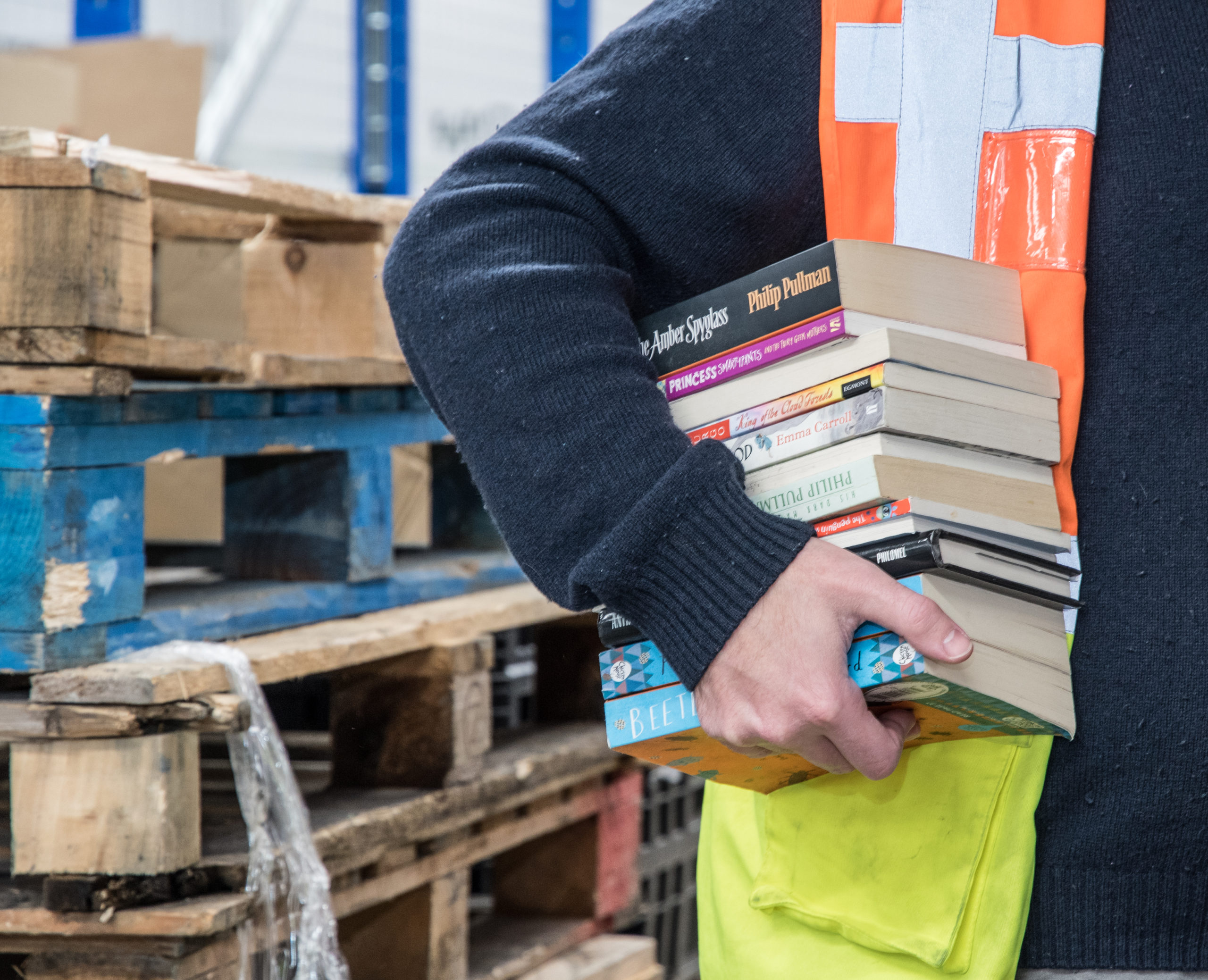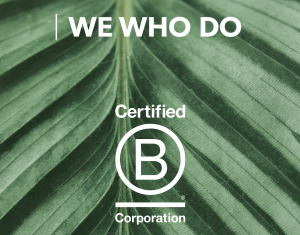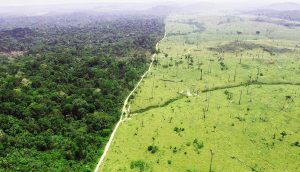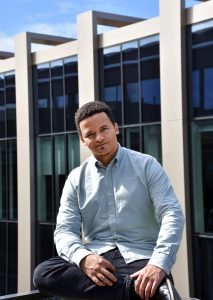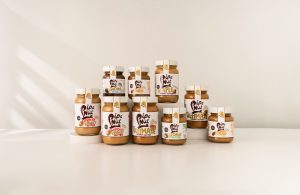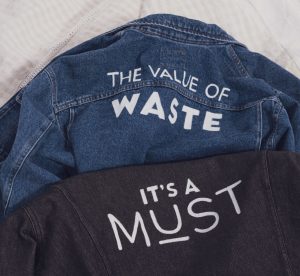Where did the idea for World of Books come from?
Simon: In the late 1990s, I could see the potential of eCommerce and how the internet could revolutionise the retail sector. Back then, I created a website, through which I sold items I had purchased from car boot sales and charity shops. I also sold these items through eBay. Being an avid reader, it was no surprise to me to find that the bestselling products were books. As a result, I decided to focus on them and develop a plan to scale the business.
As a coincidence, a friend contacted me in 2001 asking if I had ideas on how to sell books at scale. He had seen local charity shops overwhelmed with book donations and as a consequence, a bag of books which he donated was taken straight out of the back of the store and put into the waste bin. His reaction was to contact the shop to see if he could acquire the books which were being thrown away, paying the charity for them and saving them from landfill. The charity agreed and it was from this initial shop that the World of Books’ plan began in earnest.
With the sales channels setup, evidence that books have global demand and regular supply, we decided to set up the business formally and devote our full-time attention to it in 2002. We rented an office and warehouse space and extended our collection service to charity shops throughout the local area.
From the very beginning, the ethos of our business has been to balance profit with purpose. Through supporting charities, saving goods from waste and building a business built on the concepts of the circular-economy – it’s always been important for us to play our part in supporting communities and protecting the planet. We realised very early on that it is the responsibility of everyone – not just governments, NGOs and charities – to work to build a more sustainable future.
How have you had to adapt in recent months?
Simon: The most important thing for the World of Books Group is to ensure all our people are safe and well supported – pandemic or no pandemic. But through these unprecedented times, we’ve gone to great lengths to keep our people safe and actively promote wellbeing. We reacted very quickly to put in measures which ensured the safety of our people who could work from home and in our warehouses. In addition we raised awareness of our in-house mental health first aider support, further enhanced our wellbeing and benefits package, including increasing access to financial support services.
We’ve used this period to dedicate time to double down on helping our charity partners, too. Charities have been hit hard as their shops were forced to close during lockdown, meaning a major loss of revenue for them. Through Shopiago, we were able to help charities continue to sell online, and adapted the software to be web-based, allowing charity retail staff to list from their homes. Through Ziffit, we launched a partnership with Virgin Money Giving, which allows donors to continue to give their support – even when shops are closed – by trading in their unwanted books and donating the value directly to the charity of their choice.
What do you do in the sustainability space and why is it important?
Simon: As a certified B-Corp, we’re committed to using business as a force for good. Climate change is a real and imminent threat – and it’s everyone’s responsibility to do their part to protect the planet. Our business was built on sustainability, it’s our Purpose, and remains at our core as we grow.
We make sure that nothing goes to waste. We recycle around 80 million books every single year – the equivalent to half a million trees. Although books are paper, it’s not as simple as throwing them in a recycling bin. The way they are put together means we need to work closely with recyclers to be able to make sure these can be responsibly turned into new products. If we can’t find it a new home, we make sure it can be reused in other ways through specialist recycling. Through our sales and recycling, last year we saved over 37,000 tonnes of new paper. This impact will only increase as the business grows.
We’ve innovated our packaging, making sure our products can arrive with customers safely but still reduce our impact on the environment. It’s 100% recyclable, surpassing the UK Plastic Pact 2025 goal, and it is made from 30% recycled materials.

Reducing our carbon footprint is something we’re committed to. We’re driving less miles – with a reduction last year equivalent to 14 trips around the earth. We’ve introduced forklifts powered by lithium iron, electric bus services for our people and source all our main site energy from 100% renewable sources. It’s all helped to reduce our carbon footprint by almost 30% per book in 2019. We’re striving to do more – and we’re now on a journey to becoming carbon neutral. It’s a really important and exciting business priority for us.
It’s an interesting time for the circular-economy in general, the phrase is going ‘mainstream’ and big businesses are beginning to realise the potential of focusing on the triple bottom line and collective responsibility. When we started in 2002, the concept of the circular-economy wasn’t very well-known so it’s a really positive development to see brands taking the concept seriously. Our technology is well developed and we’re happy to collaborate with other businesses to build the circular-economy. We recently launched the world’s first Buy Back service for new book sellers through Ziffit. It’s now being used by some of the UKs biggest new book retailers – further closing the loop between purchase, use and reuse – and has huge potential for brands looking to improve their sustainability credentials.
Tell us what you have been working on at the moment…
Simon: As ever, there is a lot going on here. One of the enjoyable parts of working at World of Books Group is the fast paced nature of the business, we’re always looking to innovate. Off the back of the success we have had in the UK, we have been developing our consumer trade-in business, Ziffit, in the USA. We launched this in 2019 and it has been growing rapidly and we are delighted at the progress that has been made so far.
We are focussed on driving our direct sales channel, worldofbooks.com. We now have 6 global storefronts (UK/USA/Germany/France/Australia/Switzerland) and these account for a significant proportion of our sales.

We recently launched new books across the site, which is exciting. We only offer new copies of books where we don’t have any used copies in stock and encourage customers to trade these-in once they have been read to get them back into circulation. It also offers customers more choice in where they buy new books from. We’ve worked hard to create a brand with sustainability and impact at its core – it’s giving customers an ethical choice when it comes to buying new books. They know that we practice what we preach and our sustainability credentials are more than corporate lip service.
We’re continuing to support charities and communities. Not just through our software or partnerships, but also through our book donations programme. Despite the restrictions, we’ve been able to donate over 72,000 books to good causes this year both in the UK and abroad, through our partnership with organisations such as BookAid, Sussex2Africa and Own Books. We’re proud of this, but it’s just the beginning – we’re aiming to be in a position where we can donate 1 million books every year.
Where do you see World of Books in five years time?
Simon: World of Books Group continues to evolve and we are constantly looking to innovate and develop. We still purchase books from charities as we have always done. But we have also developed other services such as Ziffit, a books and media trade-in site for consumers and Shopiago, a tool which is designed to help charities sell their donated items online alongside their bricks and mortar stores.
In five years time, I see World of Books Group as the leading global Re-Commerce business, continuing to buy and sell books and media, but also expand into other products for reuse.
We’re also excited about our Software development and furthering our impact – utilising our technology and knowledge to provide services that help other businesses harness the commercial and sustainability potential of the re-use economy.

